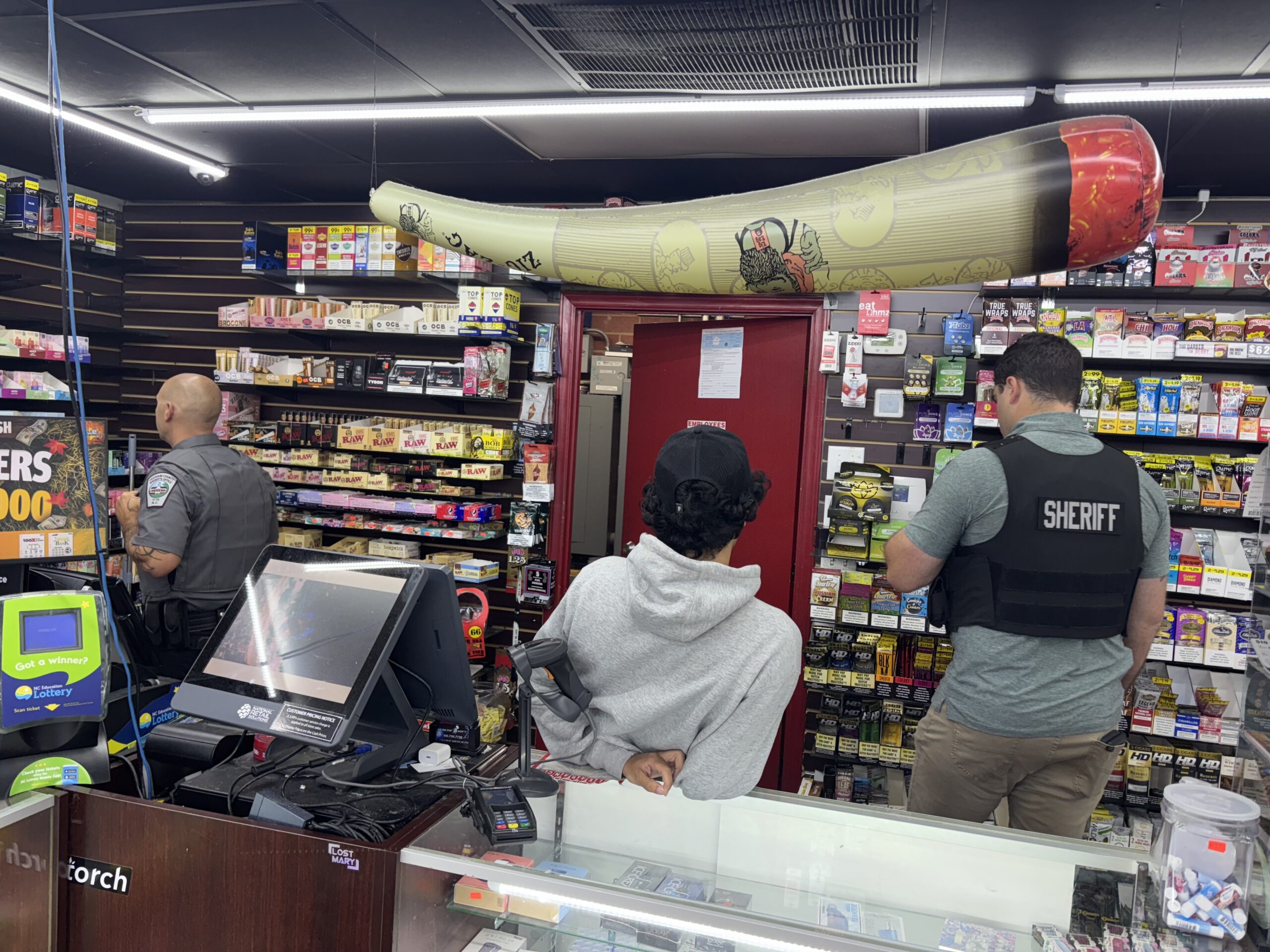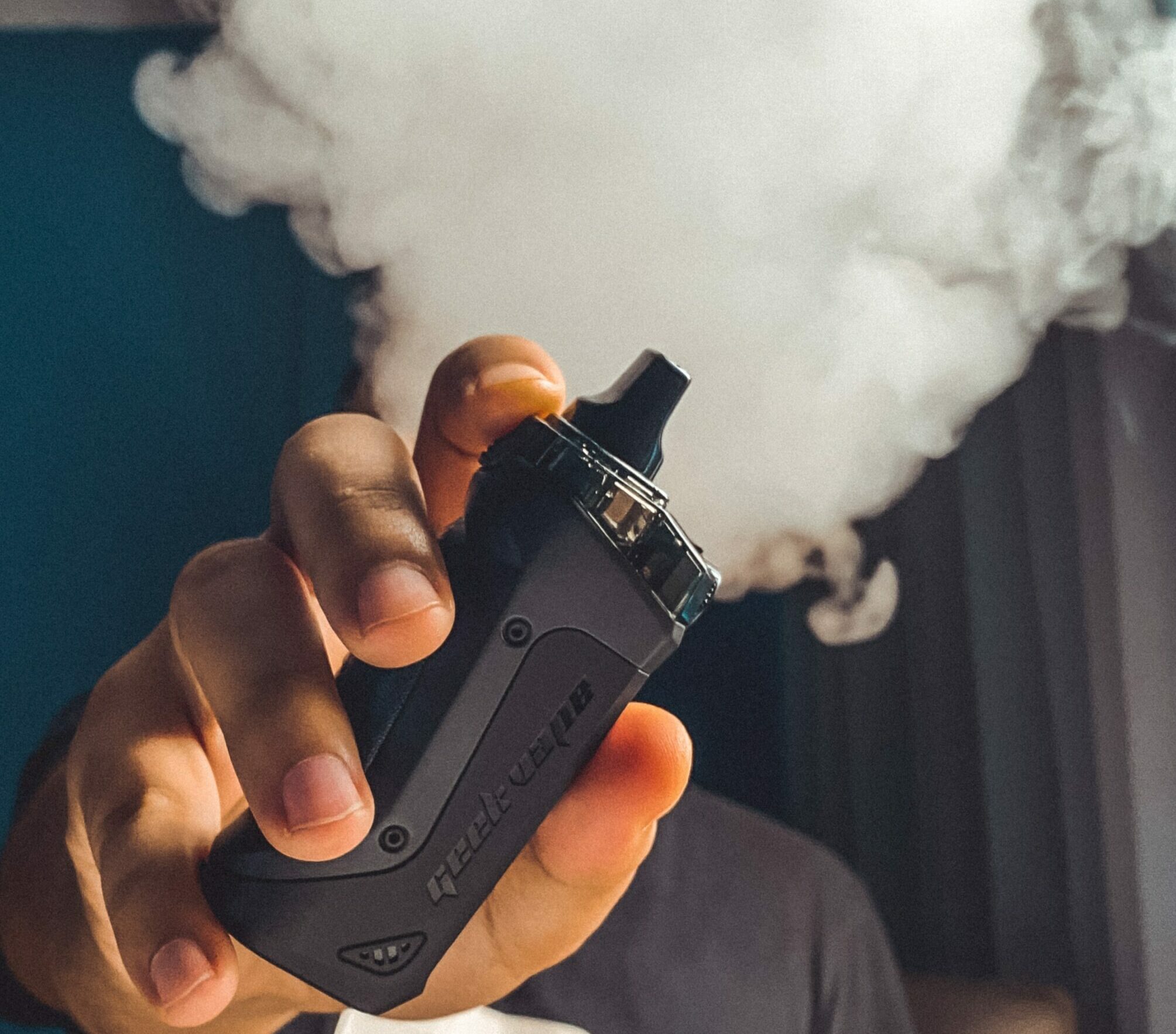As the popularity of e-cigarettes continues to grow, public health officials across the country and here at home are calling for more research and stricter regulation on their use.
“We really are in the Wild West of e-cigarettes because it has not been regulated at all by the FDA up to this point,” says Melva Fager Okun, Senior Adviser with Prevention Partners, a Chapel Hill-based non-profit focused on healthy workplaces and institutions.
Last week a trio of public health agencies released reports critical of the burgeoning e-cigarette industry. The Centers for Disease Control, World Health Organization and the American Heart Association issued calls for tighter controls on how the products are used, packaged and marketed.
E-cigarettes or personal vaporizers use atomizers to heat a liquid mixture of glycerin, propylene glycol and nicotine that users inhale. Often the mixture is artificially flavored, and Okun says it’s these flavors that have public health advocates especially worried.
“If you look at the over 7,000 flavors that these e-cigarettes come in, you can see they are definitely trying to appeal to youth,” says Okun. “They are candy flavors, they are cookie flavors and they are alcoholic beverage flavors.”
The use of e-cigarettes, called vaping, has skyrocketed in recent years to become a billion dollar industry.
Teens and young adults seem particularly drawn to vaping, as it is often marketed as safer than traditional tobacco. In North Carolina, use of e-cigarettes by teens has risen five-fold in the past two years.
Okun says much of the concern about e-cigarettes stems from evidence that they encourage traditional tobacco use as well. She cites a report from the CDC showing first time vapers were twice as likely to smoke tobacco within the year.
“I see it as a tremendous threat to the good progress that we had been making, and my great concern especially is that youth, who might not have even thought of picking up a cigarette, are now thinking about picking up e-cigarettes.”
The trend has gained ground locally as well. Okun says she’s seen an increase in retail shops selling vaporizers in Chapel Hill and Carrboro.
“I can hardly think of small shopping malls that now don’t have a designated tobacco and vapor product shop. I am very concerned.”
The federal Food and Drug Administration is considering extending its regulatory authority to include e-cigarettes. If that happens, the products will be subject to many of the same restrictions as traditional cigarettes.
In the meantime, organizations like schools, hospitals and businesses are trying to figure out how to regulate the use of e-cigarettes on their premises.
“In hospitals and patient rooms cigarettes have been long gone. Now people are pulling out e-cigarettes and staff is very confused,” says Okun. “It’s taking their time and effort now to address something they haven’t thought about in years, and they’re not sure what to do.”
Prevention Partners is hosting a free educational webinar on the topic of e-cigarettes on September 10. You can find out more here.
Related Stories
‹
![]()
Bill to Raise Tobacco Age has Unlikely Allies: Altria and JuulCongress is moving to pass the biggest new sales restrictions on tobacco products in more than a decade, with support from two unlikely backers: Marlboro-cigarette maker Altria and vaping giant Juul Labs. The legislation would raise the minimum age to purchase all tobacco products, including electronic cigarettes, from 18 to 21 nationwide, a step long-sought […]
![]()
North Carolina Prosecutor Expands Fight Against Youth VapingNorth Carolina’s top prosecutor expanded his efforts to halt e-cigarette sales to teens on Tuesday by suing eight more manufacturers and sellers of vaping products. Josh Stein, the Democratic attorney general in the traditionally tobacco-friendly state, said he’s filing lawsuits against eight companies that make or sell e-cigarettes and related products in an announcement timed […]
![]()
Ban Vaping In Orange County Bars And Restaurants?Should "vaping" be prohibited in the enclosed areas of bars and restaurants? The Board of Health wants your input.

Chatham County Sheriff's Office Busts 2 Smoke Shops for Items Over THC LimitsAfter testing THC-A products purchased at two businesses, the Chatham County Sheriff's Office announced charges against the operators.

Chatham County Sheriff Charges 9 Businesses for Selling Tobacco Products to Underage BuyersThe Chatham County Sheriff’s Office revealed Friday its efforts to run a sting operation to limit the sales of nicotine vape and tobacco-related products to underage buyers, sharing several businesses that were found to have violated the law. A release from the office said throughout August, Chatham County investigators visited 29 stores to observe any […]

Juul To Pay $40M in N. Carolina Teen Vaping Suit SettlementWritten by GARY D. ROBERTSON Electronic cigarette giant Juul Labs Inc. will pay $40 million to North Carolina and take more action to prevent underage use and sales, according to a landmark legal settlement announced Monday after years of accusations that the company had fueled an explosion in teen vaping. A state judge accepted the […]
![]()
Juul to End Product Advertising and Replace CEOJuul Labs will no longer promote its e-cigarettes in print, digital and TV advertisements and is replacing its CEO amid an escalating backlash against vaping nationwide. The nation’s largest e-cigarette maker also pledged Wednesday not to lobby against a sweeping ban on vaping flavors proposed by the Trump administration earlier this month. Juul announced its […]
![]()
Government Will Propose Banning Flavors Used in E-CigarettesPresident Donald Trump said Wednesday his administration will propose banning thousands of flavors used in e-cigarettes to combat a recent surge in underage vaping. The Food and Drug Administration will develop guidelines to remove from the market all e-cigarette flavors except tobacco, Health and Human Services Secretary Alex Azar told reporters during an Oval Office appearance […]
![]()
UNC Study: Too Easy For Teens To Get E-cigarettes OnlineA new UNC study shows just how easily teens can buy e-cigarettes online, in violation of state law.
![]()
As Use Rises, Public Health Officials Push For E-Cigarette ControlsAs the popularity of e-cigarettes continues to grow, public health officials across the country and here at home are calling for more research and stricter regulation on their use.
›




